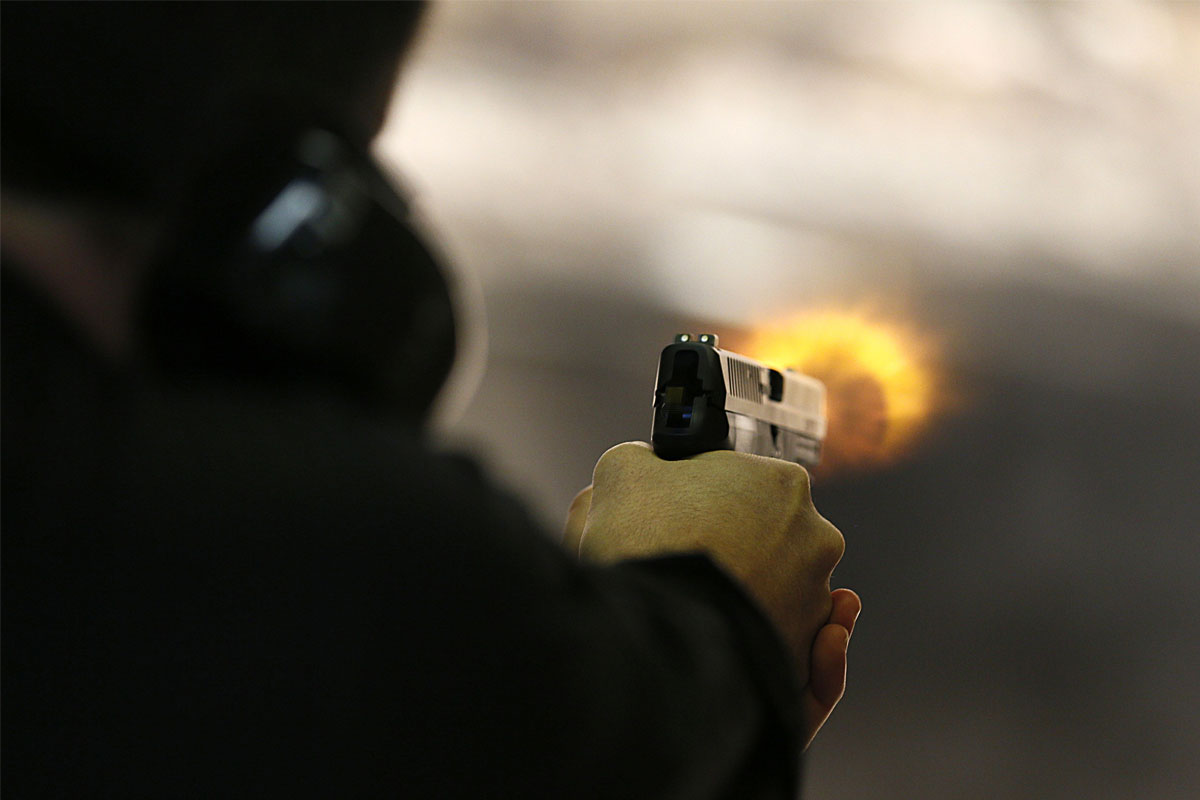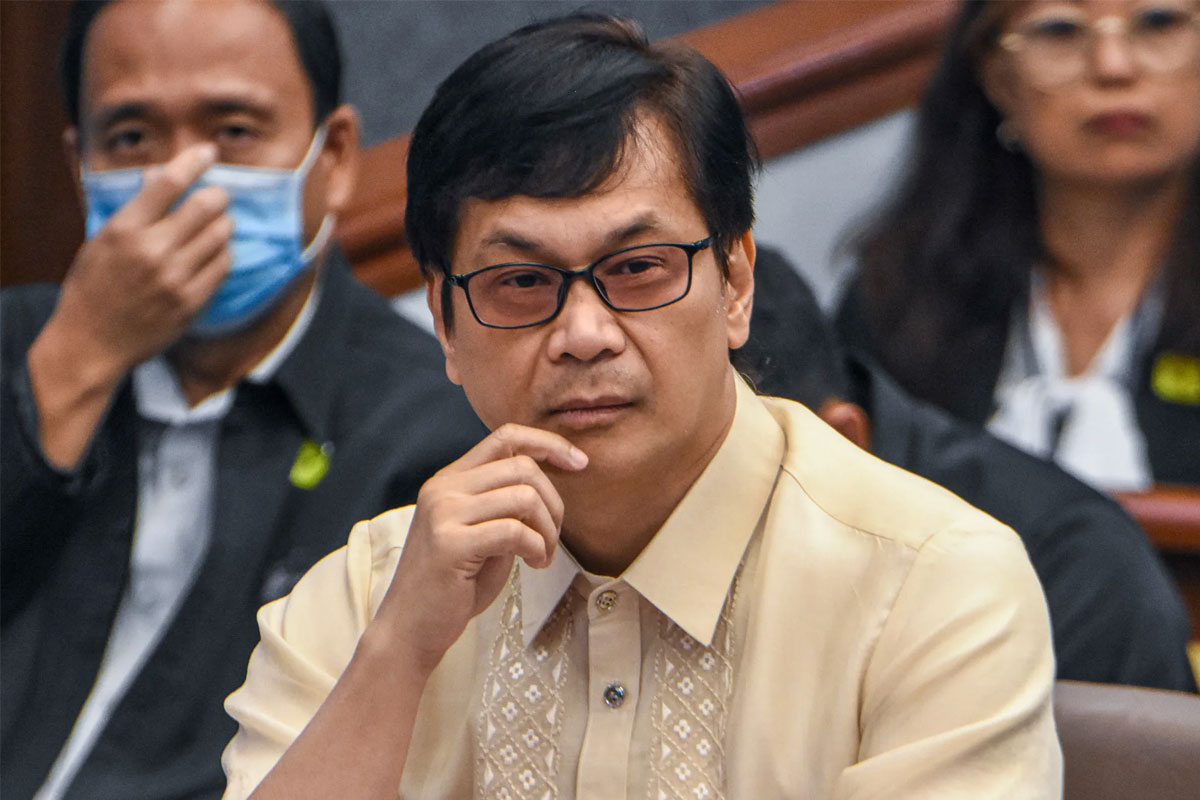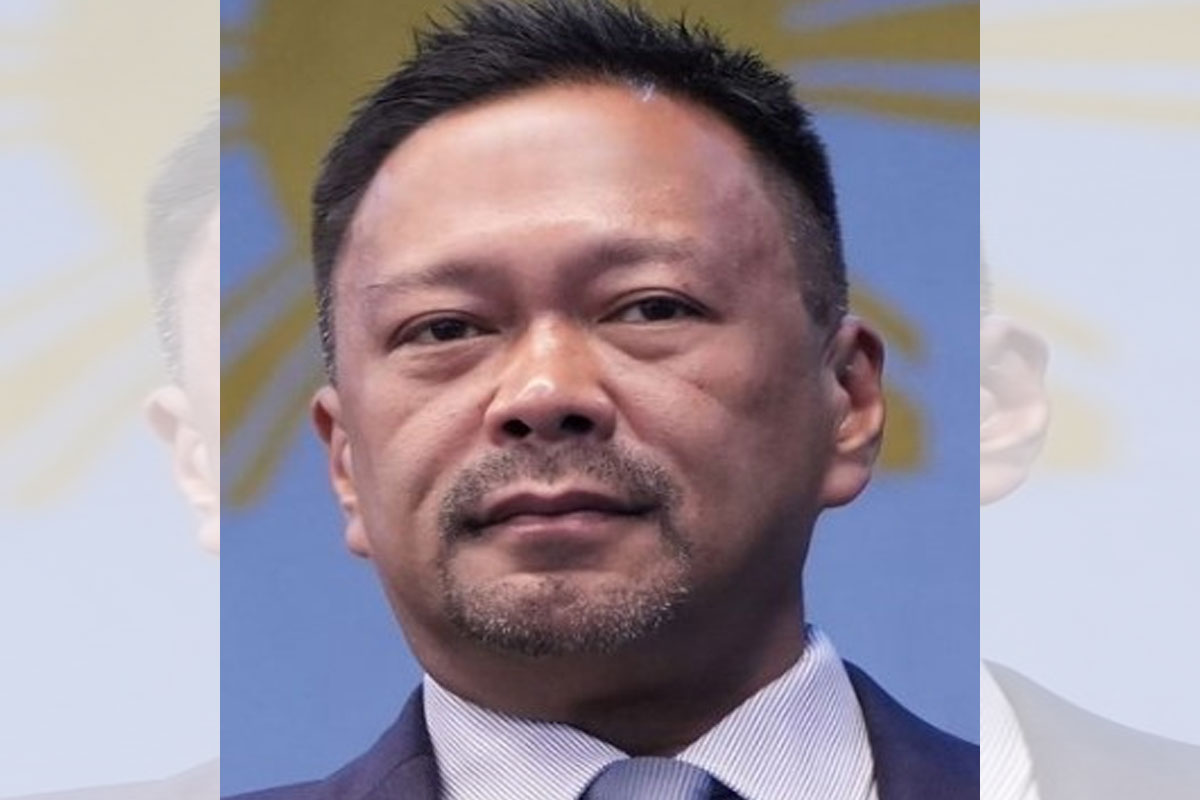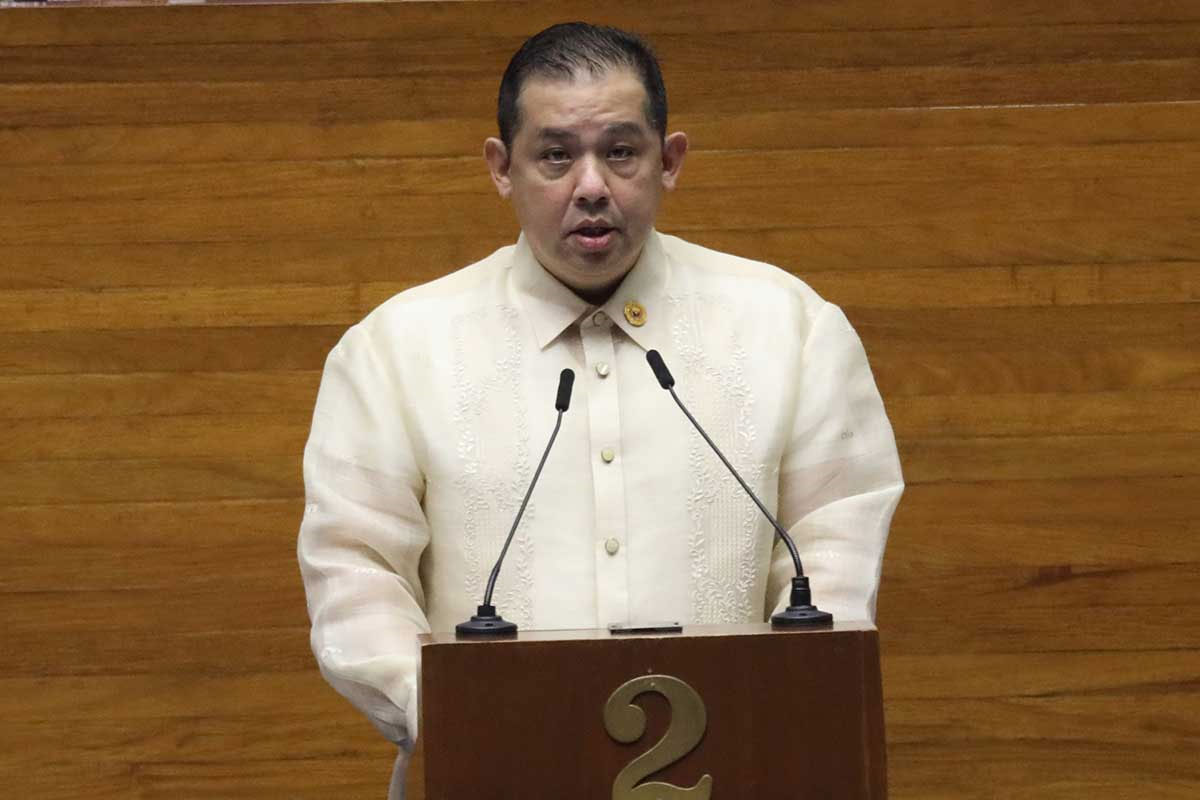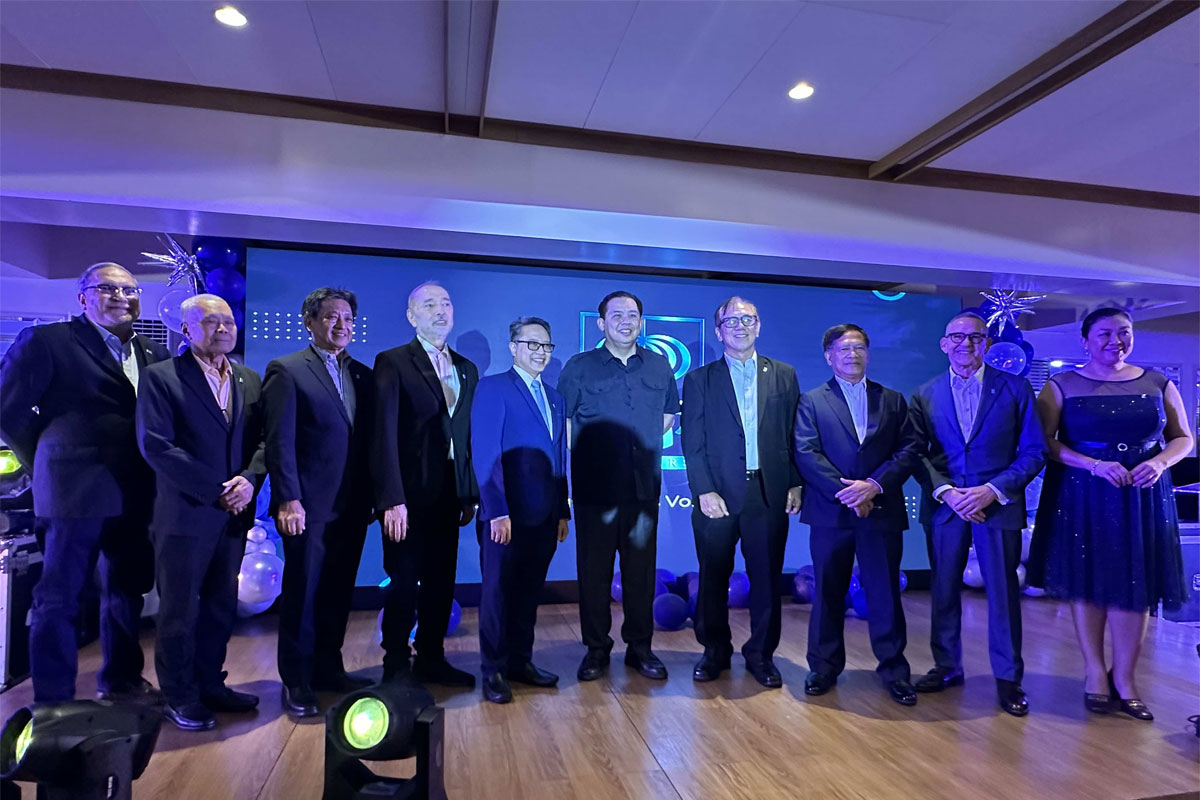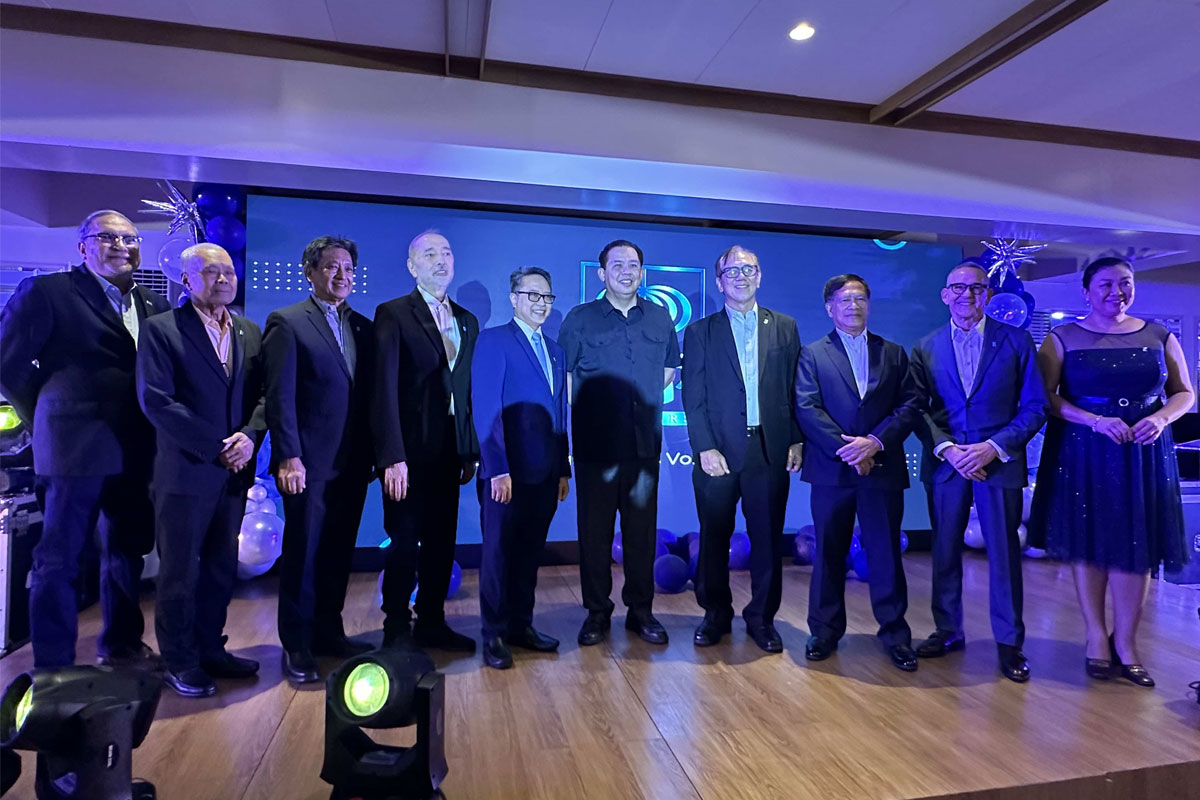
House panel eyes to amend Dangerous Drugs Act of 2002
To bolster anti-drug gains of gov’t
THE House Committee on Dangerous Drugs is combining into one bill a total of ten separate measures that all want to give a makeover to the 20-year-old Republic Act (RA) 9165 or the “Comprehensive Dangerous Drugs Act 0f 2002,” to strengthen the government’s hand in its sustained war on the highly lucrative illegal drugs trade, Camarines Sur Representative LRay Villafuerte said Wednesday.
This panel last year formed a technical working group (TWG) to consolidate into one all these ten amendatory bills to the 20-year-old RA 9165, according to Villafuerte, who had authored one of these measures—House Bill (HB) 1278—with three other Camarines Sur lawmakers.
HB 1278 aims “to expand our legal presumptions on who are considered importers, exporters and financiers of illegal drugs along with the protectors of this illicit trade, and penalties are likewise set in the proposed amendments to RA 9165 against these lawless elements and their coddlers in high places,” Villafuerte, who is president of the National Unity Party (NUP), said.
“Our amendatory bill also proposes to improve the diligence and responsibility of lessors of real properties used for the illicit drug trade to ensure that their spaces are not abused for illegal activities such as housing drug laboratories,” Villafuerte said.
He added that HB 1278 also “seeks to level up the effectiveness, capacity and training of the officers and staff of the Philippine Drug Enforcement Agency (PDEA) in enforcement, as well as to improve the reward system for persons who provide useful information to enforcers for the arrest and prosecution of those behind the illicit drug trade.”
Villafuerte explained that this House Committee chaired by Surigao del Norte Rep. Robert Ace Barbers created in a public hearing last year a TWG to bring together into one bill, HB 1278, and nine more measures proposing amendments to the anti-drugs law.
The TWG is headed by Leyte Rep. Richard Gomez, who is vice chairman of the dangerous drugs committee.
Villafuerte said the same measure was filed in the past Congress and was approved on the third and final reading at the House of Representatives, but “was not acted upon” by the Senate.
“This measure was refiled in the 19th Congress in response to a clamor for the strengthening of our existing law on drugs,” Villafuerte said. “Our battle against illegal drugs remains difficult because of the inadequacies in our existing laws that are repeatedly abused by lawbreakers to avoid criminal prosecution.”
“Hence, we propose to strengthen RA 9165 to effectively support our fight against illicit drugs in the country,” said Villafuerte, who authored HB 1278 with Camarines Sur Reps. Miguel Luis Villafuerte and Tsuyoshi Anthony Horibata, and Bicol Saro Rep. Nicolas Enciso VIII.
Local government units (LGUs) are required by the bill to appropriate a substantial portion of not less than 2% of their respective annual budgets to assist in preventive or educational programs and the rehabilitation or treatment of drug dependents, in support of well-functioning anti-drug abuse councils (ADACs) and establishment of anti-drug abuse offices (ADAOs) in their localities.
A former Camarines Sur governor, Villafuerte explained that ADACs are multi-sectoral groups composed of local officials and representatives of various community organizations tasked to plan, implement and monitor all anti-drug abuse problems in LGUs.
During the previous administration, Villafuerte had called on LGUs to establish and strengthen their respective ADACs.
Being the government’s frontliners at the community level, Villafuerte said back then that barangay officials have a responsibility to activate their respective Barangay Anti-Drug Abuse Councils (BADACs) to help the government win the war against drugs.
Villafuerte said the BADACs, whose members themselves belong to their respective localities, are familiar with the goings-on in their barangays, making them the best sources of information on drug-related incidents.
The former governor had likewise appealed to LGU executives to tap barangay health workers in the war against illegal drugs by training and equipping them with the knowledge needed to treat outpatient drug rehabilitation cases at the grassroots level.
HB 1278 slaps the maximum penalty of life imprisonment and a cash fine ranging from P500,000 to P10 million on any person who, unless authorized by law, either imports or exports any dangerous drug, regardless of the quantity and purity of the illicit product involved.
The bill states that anyone is presumed to have imported or exported dangerous drugs if found to “have in his or her possession or under his or her direct or indirect control any purchase order, memorandum receipt, delivery receipt, bill of lading, or any similar document containing information related to or in connection with importation or exportation to or from the Philippines dangerous drugs and/or controlled precursors and essential chemicals, until proven otherwise.”
The maximum prison term and cash penalty under the law is slapped, under HB 1278, on anyone who “organizes, manages or acts as a ‘financier’ of any of the activities” under the illegal drug trade.
Under the bill, any person is presumed to be a “financier” if he or she “causes the payment, raises, provides or supplies money for or underwrites the importation or exportation of dangerous drugs or controlled precursors and essential chemicals.”
“Any evidence showing delivery or transfer of money, or drawing or issuance of a check, monetary instrument or document to the account, custody or control of a person or entity known to be connected with or working for an importer or exporter of dangerous drugs or controlled precursors and essential chemicals, unless proven otherwise, is prima facie proof of the consent to or knowledge of the sender, transferor or issuer of the financing of the illegal importation or exportation of such dangerous drugs, controlled precursors and essential chemicals,” the bill stated.
This presumption may only be overturned, said the bill, “upon presentation of proof that the importation or exportation is authorized or valid.”
HB 1278 retains the penalty under RA 9165 of 12 years and one day to 20 years imprisonment and a fine ranging from P100,000 to P500,000 on any person acting as a “protector or coddler” of any violator of this law.
But the bill adds a provision presuming any person as a protector or coddler of a dangerous drugs importer or exporter “if he/she knows the importer or exporter of dangerous drugs and/or controlled precursors and essential chemicals, and he/she uses his/her influence, power or position to shield, harbor, screen or facilitate the escape of said importer or exporter.”
A person is likewise presumed a protector or coddler under this bill if he or she has knowledge of or has reasonable ground to believe that the violator is an importer or exporter of dangerous drugs and/or controlled precursors and essential chemicals, and he or she uses his influence, power or position in preventing the arrest, prosecution or conviction of the importer or exporter.
Unless proven otherwise, the bill states that “anyone found or is present within the immediate vicinity of the area of sale, trading, marketing, dispensation, delivery or distribution” of dangerous drugs is “presumed to have been involved in the sale, trade or distribution of dangerous drugs, controlled precursors or essential chemicals.”
Under the bill, any person found in possession of dangerous drugs in a set quantity or weight, regardless of purity, is “presumed to have been engaged in selling, trading, dispensation, delivery or distribution of dangerous drugs.”
The specific volume of possession under HB 1278 is either 200 grams or more of marijuana or 50 grams or more of shabu or methamphetamine hydrochloride, cocaine, cocaine hydrochloride, opium, heroin, morphine, marijuana resin or marijuana resin oil, or other dangerous drugs such as methylenedoxymetamphetamine (MDMA) or “ecstasy,” paramethoxyamphetamine (PMA), trimethoxyamphetamine (TMA), lysergic acide diethylamine (LSD), gamma hydroxybutyrate (GHB), and those that are similarly designed or are newly introduced drugs and their derivatives.
However, the bill proposes a shorter prison term of 6 years and one day to 12 years and a lower fine ranging from P50,000 to P200,000, “if the quantities of dangerous drugs are less than two grams,” and “those similarly designed or newly introduced drugs and their derivatives, without having any therapeutic requirement, or less than 50 grams of marijuana.”
The bill proposes a penalty of life imprisonment and a fine ranging from P500,000 to P10 million on any person or group of persons who shall maintain a den, dive or resort in which any dangerous drug is used or sold in any form.
If such den, dive or resort is owned by a third person, the bill states that this property shall be confiscated and escheated in favor of the government, provided that “in case the owner of such property is a partnership, corporation, association or any juridical entity, the partner, president, director, manager trustee, estate administrator, or officer who consents to or tolerates such violation shall be criminally liable as co-principal.”
In this case, “the criminal complaint shall specifically allege that such place is intentionally used in the furtherance of the crime, provided that the prosecution shall prove such intent on the part of the owner, partner, president, director, manager, trustee, estate administrator or officer of the juridical entity to use the property for such purpose—and shall be included as an accused in the criminal complaint,” stated the bill.
Any equipment, apparatus, paraphernalia suitable for the use, manufacture or production of dangerous drugs and/or controlled precursors and essential chemicals found in a clandestine laboratory, or in any other place or property, shall be presumed, under HB 1278, as “prima facie proof that said laboratory, place or property is used for the purpose of manufacture or production of any dangerous drugs and/or controlled precursors and essential chemicals, and that the person who has the actual or constructive control or management thereof permits such property to be used for the purpose.”
As proposed by HB 1278, the penalty of imprisonment ranging from 6 years and one day to 12 years and a fine ranging from P500,000 to P1 million shall be imposed upon “the owner or lessor of a building, warehouse, or any property, or in his/her absence, the duly authorized representative who leases the property to any person but omits or fails to ascertain, check and confirm that the property is actually used for a lawful purpose, and which property is found to have been actually utilized as clandestine laboratory or used in the manufacture or storage of dangerous drugs, controlled precursors and essential chemicals.”
The maximum penalty shall be imposed upon the owner or lessor, or his or her duly authorized representative who has discovered the illegal activity but failed to report the same to proper authorities, says the bill.
“If the property subject of lease is government-owned, the government officials and employees who omit or fail to observe and discharge the legal obligation required in the preceding paragraph shall suffer the maximum penalty in addition to absolute perpetual disqualification from any public office,” it stated.
It added that “If the property subject of lease is owned by a partnership, corporation, association, or any juridical entity, the person liable to the penalty prescribed in the first paragraph of this section is the corporate or association president, chief executive officer, chief operating officer or manager, or any partner in a partnership, any member of the board of directors/trustees of any corporation or association, any estate executor and administrator, or any of their duly authorized representative.”
The lessor is, unless proven otherwise, presumed to have given his or her consent to the illegal use of the leased property if he or she fails to visit and inspect the leased property at least once every quarter, the bill said.
“The visitation shall be evidenced by an affidavit to be executed within 5 days from date of visitation and inspection, by the private individual, concerned government official or employee, or concerned officer of the partnership, corporation, association, or juridical entity that owns the property subject of the lease and certification from the barangay,” the bill stated.
It said that the affidavit shall categorically state the following: (a) the date when the inspection of the property was made; (b) the details of the things seen and observed during the inspection; and (c) the fact that the leased premises are not being used for any unlawful purpose, if such is the case. “The failure to comply with the foregoing mandatory reportorial requirements shall, unless proven otherwise, be presumed that no such visitation was conducted on the leased property for the duration of the covered period.”
The bill imposed the penalty of life imprisonment plus a fine of P500,000 to P10 million on “any person found possessing any dangerous drug during a party, or at a social gathering or meeting, or in the proximate company of at least 2 persons, regardless of the quantity and purity of such dangerous drugs.”
Under the bill, anyone apprehended or arrested who is later found, after a confirmatory test, to be positive for use of any dangerous drug or controlled precursor and essential chemical shall be imposed a penalty of a minimum of 6 months to 18 months in-patient treatment and after-care rehabilitation program to be determined by a physician, and which shall start after the release of the drug dependent from the rehabilitation center in a government center.
If found to be not a drug dependent, he or she shall suffer the penalty of imprisonment ranging from 6 months and one day to 6 years and a fine ranging from P10,000 to P50,000 says the bill.
If apprehended using any dangerous drug or controlled precursor and essential chemical for the second time, he or she shall suffer the penalty of imprisonment ranging from 6 years and one day to 12 years and a fine ranging from P50,000 to P200,000.
Under this bill, possession of any instrument, apparatus or paraphernalia fit or intended for illicit drug use shall be “a prima facie evidence that the possessor has smoked, consumed, administered to himself/herself, injected, ingested or used a dangerous drug.”
The bill requires apprehending teams to properly document their anti-illegal drugs operations, from the beginning until the end, through the use of valid and legitimate technology, including wearing body-worn cameras.



